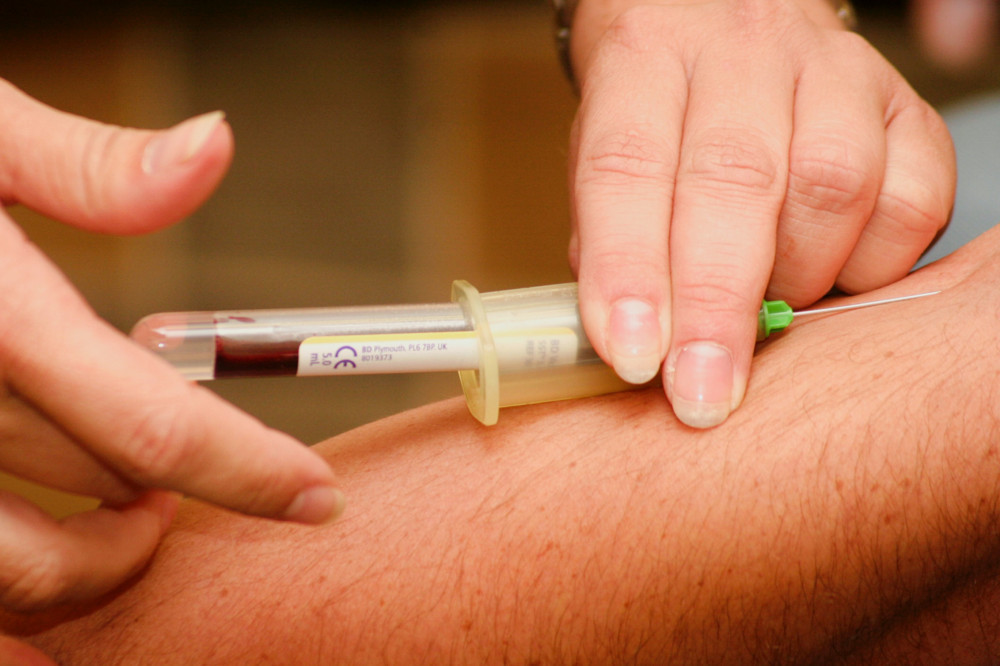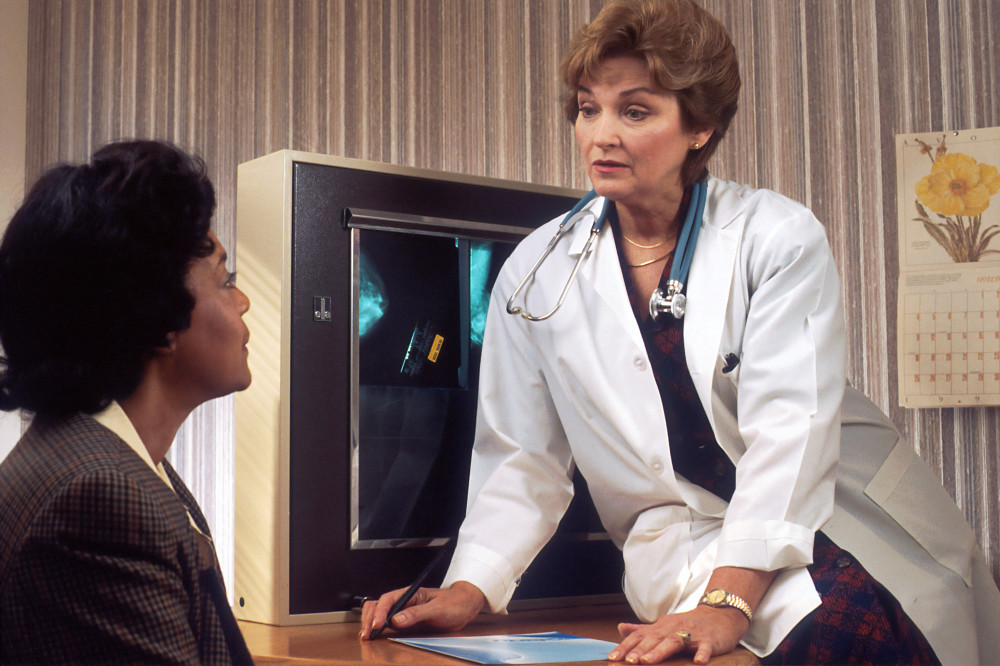Do you have questions about hirsutism? Is one of them when should you see an endocrinologist? You probably know there’s something unusual going on in your body.

Hirsutism, excessive hair growth, is an outward show of the possibility of something more serious going on. So, find out about this and other conditions posing a threat to your health and wellbeing.
Get diagnosed and your questions answered as soon as possible. Bear in mind, you may need a referral from your primary care physician.
You Should See an Endocrinologist If:
- You’re a woman and you have male-pattern hair taking over your life.
- You’ve already started a hair removal procedure and the problem persists.
- You’re experiencing male-pattern baldness whether or not it’s hereditary.
- You have irregular, excessive, or no menstruation.
- You’re experiencing weight gain for no apparent reason.
These may be signs of irregularities needing to be corrected. Some of them may be interrelated. For example, Polycystic Ovary Syndrome (PCOS) has various symptoms related to hormone imbalance.
Hirsutism is one of the main telltale signs.

Hirsutism | You’ve Got Hair!
So, hair’s the thing? Don’t be alarmed and ignore excessive hair growth without taking steps to find the underlying problem. If that’s your situation, fight back in every way you can!
What’s really going on that’s causing you to have hair here, there, and everywhere you didn’t expect it? And you’re doing everything you know to keep it out of sight.
You know something is wrong or you’ve seen other family members similarly endowed. They may have accepted it as part of the family tree. It could be hereditary and abnormal at the same time.
It’s not unusual for health issues to run in families. But stop for a minute and do a self-examination.
Are you aware of anything else that seems abnormal or out of place? What about the symptoms listed above? Start by checking off items on the list that apply to you.
This could be a clear sign of hormone imbalance. So, instead of asking when should you see an endocrinologist, tell yourself it’s time. They will answer your questions about hirsutism and other disorders.
Furthermore, asking questions is important to get to the root of the matter.

Hormone Imbalance | Endocrinologist and Other Specialists
An endocrinologist is the best medical practitioner to handle conditions related to hormone imbalance. They specialize in the glands that make up the endocrine system.
These include the adrenal, reproductive (ovaries and testes), thyroid, parathyroids, pituitary, hypothalamus, and pineal body. They also regulate the major functions of the body for optimal health.
When there’s an imbalance in any of the glands, other parts of the body system are affected. Sometimes it’s one area or organ. At other times it’s an entire system.
Other key players in your journey include…
- Dermatologist: This specialist handles issues dealing with the hair, skin, and nails.
- Nutritionist: It’s important to work with a knowledgeable nutritionist or dietitian to get you on a healthy eating path.
- Fitness Coach: Do you have trouble starting or committing to any form of exercise regimen? A fitness coach will help you develop a stick-to-it mentality.
- Hair Removal Specialist: The main players here include an electrologist and laser hair removal technician.
Nutrition and exercise play a critical role towards maintaining and enjoying optimal health. You will also benefit from a team committed to your overall wellbeing.
Your medical professionals will advise you of any testing you need to have done for proper diagnosis.

Other Telltale Signs | Don’t Ignore Them
It’s easy to become aware of abnormalities and think they are nothing to be concerned about. But, think again. You should pay attention and take action.
Some conditions will throw your system off balance temporarily. The starting point would be to check with your primary care physician. That way you will rule out something you may need an endocrinologist for.
One condition sometimes setting off a false alarm is pregnancy — a phase including possible hormone imbalance.
Likewise, some individuals who exhibit obesity may believe they are pregnant. This may bring short-term excitement or anxiety based on their expectations.
Additionally, entering the adolescence phase is a turning point that stimulates your hormones to interact more than usual. There are many changes taking place on your way to adulthood.
It may be a new experience for you causing alarm and confusion. Therefore, it’s a time to educate yourself and be prepared for this phase of your life.
Not everyone gets relevant or accurate information about adolescence ahead of time. Some parents shy away from the topic because they were never taught by their parents who didn’t know how to do so.
Should you see an endocrinologist? Ask your primary care physician.

Talk with Your Endocrinologist | Do it Now!
So, here’s the thing: Why wait? You already know the signs and symptoms you’re dealing with. Take the step that could turn things around for you. Even if the problem turns out to be just cosmetic, you have nothing to lose.
It may cost you financially, but how much better is it for you to have peace of mind. Wouldn’t you rather prevent something now that could potentially cause you long-term suffering?
Later shouldn’t be an option if you have the information now to help you avoid facing a bigger problem ahead.
Talk with your endocrinologist and get answers to your questions. Be informed and willing to take the next preventative or restorative steps.
Get a clear understanding of what you’re going through, what causes it, and any side effects or contraindications. There may be interactions with medications you’re already taking.
You may have conditions that would prevent you from taking certain medications or treatments. Be attentive to those important information.
If the cosmetic outward appearance is bothersome to you, there’s another step you could take. Treatment and remedies are available to help you in that area also.
“When Should You See an Endocrinologist? | Hirsutism Questions,” gives you information that may be beneficial to you or someone you know.
I made one of the greatest discoveries while writing this article. What made it interesting is that I wasn’t researching information for hirsutism when this happened.
I was casually reading a book on writing. The author mentioned different niche organizations. The National Polycystic Ovary Syndrome Association caught my attention. That’s finding a nugget!
Share this information with family, friends, or your groups. It’s likely someone will find just what they’re looking for — a bridge to more information and pursuit of a solution.

Thanks for sharing this information, it’s a great article. I don’t have much knowledge on this subject, but I understand that there are some components widely used in cosmetics such as Parabens, Phalates and some fragrances, among others, that can cause endocrine disruption and hormonal imbalance. Do you know if these can cause Hirsutism?
Hi Pablo:
Thank you for reading and commenting on my article. You are right about some of these things potentially playing a part in hormonal imbalance. This could also involve Hirsutism.
Like any other study, the opinions are mixed. The conclusion in some instances state that there is minimal cause for concern. It’s always best to stay on top of information to get a clear understanding.
Most importantly, individuals should seek professional advice in addition to paying attention to what triggers their symptoms.
Thank you so much for your time and interesting question.